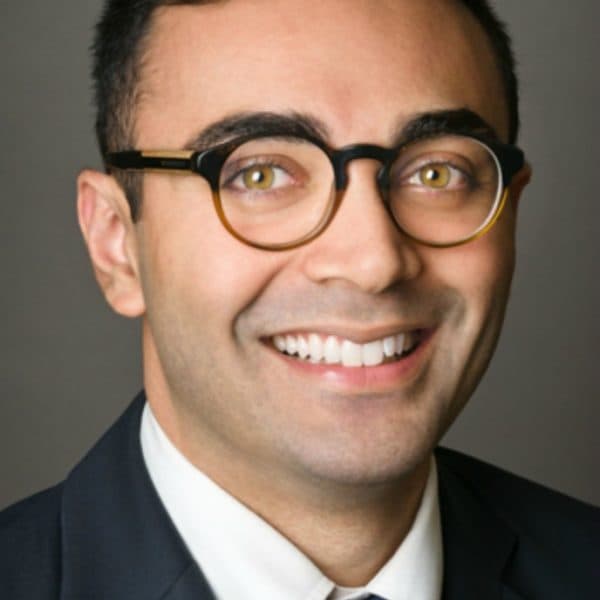Advertisement
Commentary
We Are All Tired Of The Pandemic — But Our Actions Can Still Make A Big Difference

A few weeks ago, I was hanging out with a colleague who is also a health care worker outside of the hospital. After a few minutes, he began to cough. It was a dry cough, and it was mild enough that at first, I tried to brush it off in my mind. The air in the room was hot and dry, after all.
A few minutes later, he coughed again. When I pointed this out to him, he denied it. This time, I pressed him on it. “You definitely just coughed,” I said. “Have you been tested?” He hadn’t. When I asked him how long he had been coughing for, he said he wasn’t sure. We had hung out a week earlier and I assured him he hadn’t been coughing then.
He then surprised me by saying, “Well, I don’t have a fever.” He knew that you don’t need a fever to have COVID-19 — and we both knew that he knew. He was embarrassed, and I could tell. I told him I would put my mask on, and advised that we should both get tested. I tried my best to do this with empathy rather than judgment. Thankfully, we were both negative.
Ultimately, these mental gymnastics don’t change the hard facts -- the virus can find a way in wherever and whenever we break the rules of contagion.
Just before Thanksgiving, another friend told me that he and his family had a plan for heading home.
They would all get tested for COVID-19 a few days before and then gather for a week together. But with a grueling work schedule, he wasn’t able to get tested before the day he was heading to his family home, even though he had access to testing as a health care worker. His father urged him to come home anyway. “Your girlfriend was negative — you probably are, too.” My friend considered still going, but ultimately held out until he could get a test.
I am willing to bet that every single one of us has slipped into denial at times during the pandemic. I have.
Ultimately, these mental gymnastics don’t change the hard facts — the virus can find a way in wherever and whenever we break the rules of contagion. Eventually, it becomes a matter not of “if” but of “when.”
There are two big mistakes we cannot afford to make right now. The first is to convince ourselves that what we do doesn’t matter — such as my friend’s father encouraging him to just come home anyway when he couldn’t get tested. The second is to convince ourselves that COVID-19 won’t happen to us. My friend with a cough tried to ignore his symptom, and then present an argument — not having a fever — that he knew was not true.
If and when millions of people begin to think in these ways, we are in big trouble.
The virus doesn’t care about how we justify decisions to ourselves. It also doesn’t care how good or how poor we are at risk-assessment. And, generally speaking, our risk assessment as human beings is quite poor, especially when things are going well (for instance, if you have not yet been infected despite doing risky activities). It is even worse when our daily risk is changing so quickly — what was mildly risky last week could be very risky this week.
And while it is easier to blame people for viral spread, it is much harder to acknowledge the actions that avoided transmission ... There are invisible heroes among us.
As much as we are depending on federal leadership, access to more testing, faster tracing, safer isolation options, better masks and more, so, too, must we realize that our individual decisions really do matter. Every choice we make could mean someone else’s life, weeks from now. As much as we are unknowingly becoming super spreaders, so, too, can we stop super spreading from happening. And while it is easier to blame people for viral spread, it is much harder to acknowledge those actions that avoided transmission, largely because preventing something is hard to quantify and appreciate. There are invisible heroes among us.
For most people, the upcoming holidays, including Christmas and New Years (as well as Thanksgiving, which just passed), will present choices that each of us must make — and what we do will change the trajectory of the epidemic in one way or the other.
As many of us have pointed out, a single PCR test is a snapshot in time, but won’t guarantee that you are not incubating the virus in the days after your test. As the virus spreads through our communities at exponential speed -- we registered just over 200,000 new cases on a single day this past week -- the chance that you will be exposed to someone who is infectious in your daily routine is likely higher than it has ever been (there are exceptions to this, of course). Moreover, a recent investigation implicated a traveler who had tested negative 48 hours before his flight, and still infected four other passengers according to genomic analysis. Testing is critical, but it is not foolproof at this time.
With this in mind, I urge you not to think, “It won’t happen to me,” but instead, “My actions matter.” This virus won’t be stopped by suits around a table in the White House, although their support to communities is necessary and long overdue. It will be stopped by the sacrifices of individual people for their families, their neighbors, their communities — this is how we will win this. The difference between millions of people thinking the virus won’t get them versus millions believing what they do matters could alter the entire epidemic.
